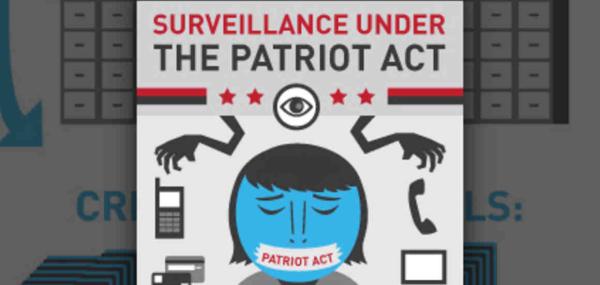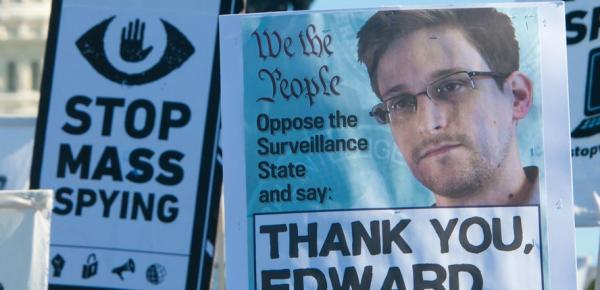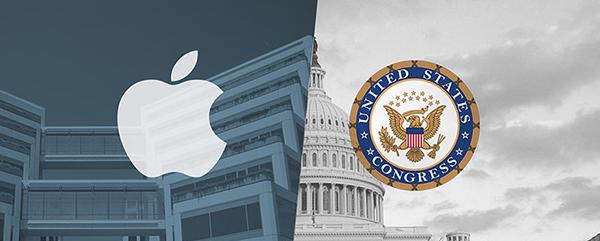Of AstroTurfing, and one-sided Electronic Frontiers around Privacy
My own short summary of a very interesting article.

According to the Oxford Dictionary, astroturfing is “the deceptive practice of presenting an orchestrated marketing or public relations campaign in the guise of unsolicited comments from members of the public.". This post is a very short summary of a much longer, must-read article about astroturfing and the Electronic Frontier Foundation (EFF). I am publishing this excerpt to highlight a crucial, industry-encouraged misunderstanding of how online privacy and censorship work, and what we should all demand from NGOs active in those fields.
The Beginnings of EFF, and its switch

In the early 90s, EFF was mainly a lobby for Internet Service Providers (ISPs). When the CALEA/wiretap law was issued, for example,they (as The Baffler puts it) “placated law enforcement and Congress while getting the best deals they could for telecoms and ISPs”. After moving to San Francisco in 1995, that side of EFF operations became less prominent.
The reason is that, after the 90s, the privatized and deregulated ISP industry was replaced by platforms like Google and Facebook, which make money by massive surveillance of their own users. To protect that business model from copyright and privacy laws, Silicon Valley built up a powerful lobbying and public relations machine, and the EFF focus changed accordingly.
2003: the Patriot Act

In 2003, EFF denounced the USA Patriot Act as a threat to civil liberties, and criticized government internet surveillance initiatives launched after 9/ 11. EFF worried that these technologies would allow the government to turn the internet into a surveillance machine and compile dossiers on millions of Americans with unprecedented ease.
2004: California vs Gmail

One year after the Patriot Act, Google launched Gmail with the already mentioned business model: give email and storage for free, in order to be able to analyze messages and, ultimately, tie that personal information to real-world identities. Consequently, many people immediately asked Google to put Gmail on hold until the privacy concerns could be addressed and fixed. Instead of joining that request, EFF sided with Google. They attacked a law proposal that would have prohibited email providers like Google from analyzing people’s emails for targeted ads, unless users explicitly opted in.
Basically, for EFF Google’s data collection was not just a an extension of one big private-public surveillance apparatus.
2012: Snowden

In 2012, Edward Snowden’s NSA leaks showed that companies like Google, Facebook, Apple, and Microsoft had knowingly turned their platforms and services into feeder tubes for government spies. In that occasion EFF focused narrowly on government surveillance: The U.S. government was the real enemy, and it could only be stopped with powerful encryption… provided by private companies like Google. Or Apple.
2015: Apple vs FBI

In 2015, the FBI asked Apple to unlock an iPhone belonging to one of the San Bernardino mass shooters. Apple refused, claiming that such a collaboration would forever endanger iPhone and cloud users around the world.
EFF and others] backed Apple, framing the whole case as a matter of First Amendment freedoms. That made sense, because EFF was supposed to exist to keep the internet free and democratic. Three years later, however…
2018: Cambridge Analytica

The Facebook-Cambridge Analytica scandal erupted of 2018 seemed a dream organizing opportunity for EFF and its allies, but they just went silent. April Glaser, a Slate tech reporter, publicly asked EFF and other tech watchdogs to do something to protect people from Silicon Valley surveillance because they knew how to do it. But EFF did not answer, or act. Why? Let’s summarize the events before answering.
The common thread
The cases presented above show, says The Baffler, that EFF is just a Silicon Valley corporate front group, directly responsible for bringing into being the current internet dominated by “giant monopolies… lacking any democratic oversight”. EFF has just been much more successful than others in positioning itself as a defender of the people. Because, in all those cases:
- companies like Google are presented as friends and protectors of ordinary people, or neutral at worst. [Only] The government is bad
- privacy means only “privacy from government surveillance
- regular internet users and Big Tech shareholders have the same interests
- privacy protection must not happen via industry regulation, but exclusively by encryption
- regulation of Silicon Valley is a symptom of totalitarianism
- in general, only technology, not law, could truly safeguard people
- advocacy actions are focused in ways that pose no threat to Silicon Valley
Why is it so?
Glaser argued that the reason is money. Indeed, EFF has taken millions in funds from Google and Facebook, via straight donations or other channels. The Baffler, however, argues that the reason for EFF’s silence or inaction is deeper: basically, its founders and leaders would also believe that, regardless of money, the only thing that matters is to protect private initiative “against the specter of government regulation of any kind”.
And my point is…
The Baffler also criticizes the EFF campaigns against the SOPA/PIPA anti-piracy bills. Personally, I tend to agree with EFF on those specific topics. In general, I will leave to EFF to defend itself from the “corporate-front” accusations in The Baffler article.
I assembled this excerpt for another reason, which is to make it easier to get, regardless of EFF, a crucial issue that The Baffler has presented very well:
Framing “user privacy as being threatened [only] by ever-imminent government censorship, as opposed to the protection of users and their data from wanton commercial intrusion and exploitation” is, at best, a very limiting, deeply flawed attitude. The more people realize this NOW, the better.
Who writes this, why, and how to help
I am Marco Fioretti, tech writer and aspiring polymath doing human-digital research and popularization.
I do it because YOUR civil rights and the quality of YOUR life depend every year more on how software is used AROUND you.
To this end, I have already shared more than a million words on this blog, without any paywall or user tracking, and am sharing the next million through a newsletter, also without any paywall.
The more direct support I get, the more I can continue to inform for free parents, teachers, decision makers, and everybody else who should know more stuff like this. You can support me with paid subscriptions to my newsletter, donations via PayPal (mfioretti@nexaima.net) or LiberaPay, or in any of the other ways listed here.THANKS for your support!